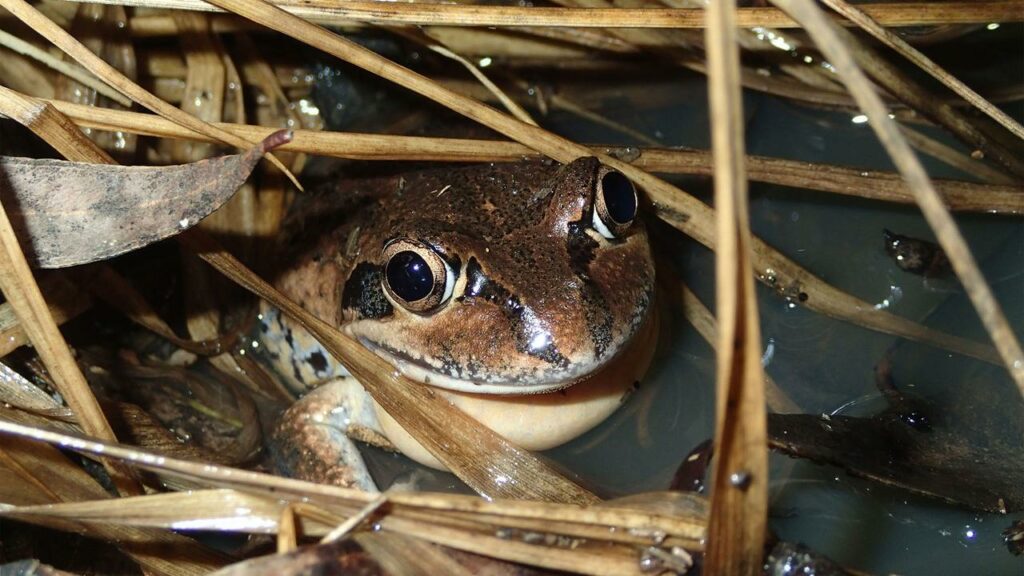‘Like an accent’: Not all frogs ribbit the same
Joanna Guelas |

Just like humans when they speak, frogs have accents when they ribbit.
Nearly 700 banjo frog calls have been analysed by researchers thanks to everyday frog lovers submitting audio to the Australian Museum’s FrogID project.
From listening to the calls, it became clear to scientists that not all frogs ribbit the same.
University of NSW student Grace Gillard worked on the project with the Australian Museum and studied banjo frogs.
“All frogs have a unique call,” she told AAP.
“You can slightly tell the difference between these species. You’ve got screaming frogs or ones that make more of a chirpy sound or a squelching sound.
“Think of it like an accent.”
Frogs depend entirely on acoustic communication, unlike other animals who might also use visual cues.
But researchers were surprised to find that the variation in frog calls was not strongly linked to the immediate surrounding habitat.
“We were surprised by the results, because the link between habitat and variation in animal calls has quite a strong theoretical background,” Ms Gillard said.
The latest findings, she said, suggest that the evolution of banjo frog advertisement calls has instead been influenced by the interplay between a multitude of factors, such as the noise of wind, water and other animals.
Ms Gillard highlights the importance of everyday people contributing to the project.
More than 550,000 frog calls have been submitted to the FrogID project, which aims to identify and provide valuable data for the protection of frogs.
“I’ve done my research with nearly 700 individual frogs from WA, Tasmania and all the way up to Queensland,” Ms Gillard said.
“So if I were to go and do that myself, it would take at least 700 nights of recording.”
Having people record frog sounds in their backyards and submit them to the project has been valuable for frog research.
“There’s a gap in knowledge for frogs because of the logistical problems with actually sampling across your entire range,” Ms Gillard said.
“It’s just so cool what citizen science can do.”
Ms Gillard plans to broaden their research to look at different species of frogs with more complex calls.
The study is published in the Journal of Zoology.
AAP